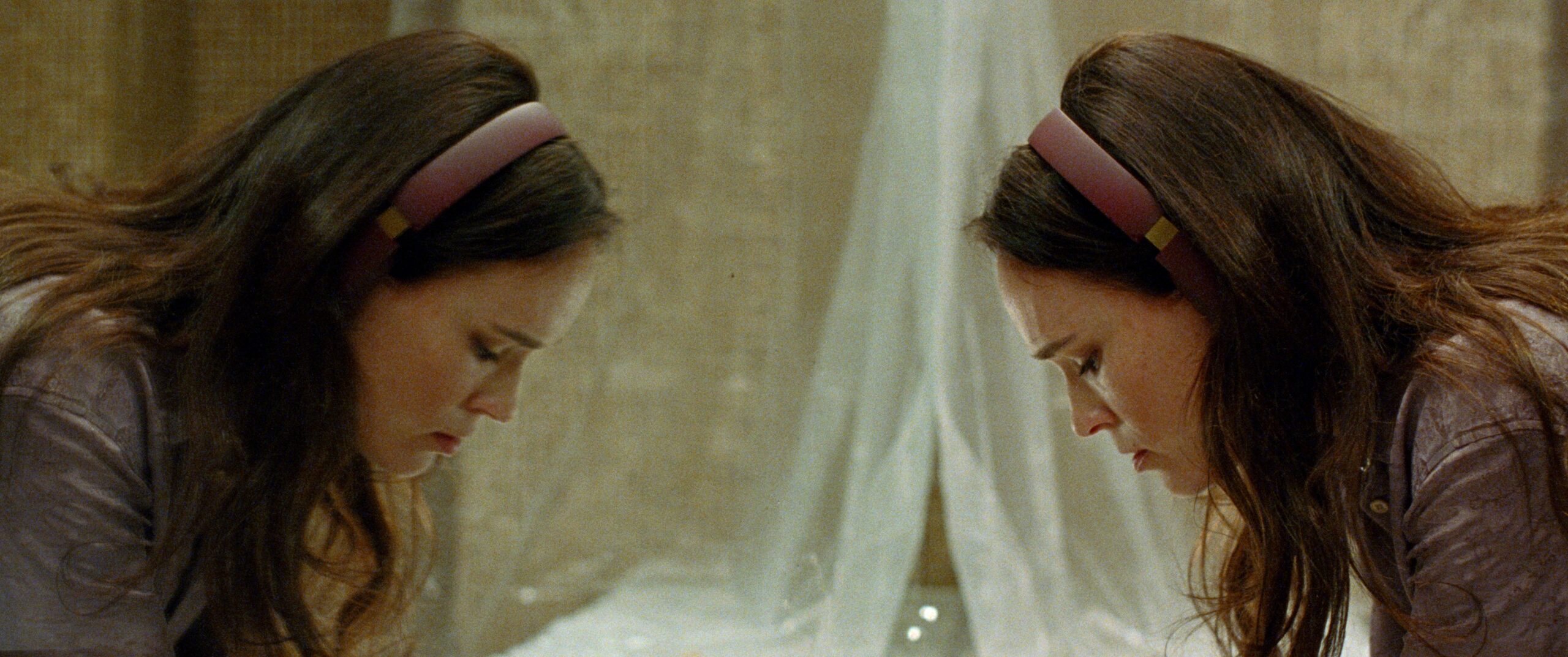I’M NOT A ROBOT
dir. Victoria Warmerdam

Is it worse to have misfortune befall you, or to find out that it’s been there the whole time? If you’re one to indulge in the anxieties of hypotheticals, keen to feed plausibility to your worst imagined fear, Victoria Warmerdam’s Oscar-nominated short, “I’m Not a Robot,” is a film for you. Lara (Ellen Parren), a music producer in the middle of her workday, is one banal software update and CAPTCHA away from earth-shattering truth. The camera slowly moving in on her in the opening shot doubles as her predicament creeping up on her. Isn’t that how it always happens, slowly yet suddenly, suavely penetrating our lives without us noticing until it’s standing right in front of us? Here, this comes in the form of the common fear that we are not human, but machine. Not human, but different, and therefore unambiguously monstrous. That we are Radiohead’s “Creep” and, worse yet, that we are the last one to find out.
Set in the current context of humanity’s increasingly promiscuous reliance on technology, ethical questions of god-like ownership over life and death take a new appearance in this 22-minute science fiction film, namely one wherein robots are way, way closer to us than we think (“The Others,” anyone?). “I’m a person, yes,” Lara reassures her oblivious coworkers but, more truthfully, herself, manifesting an identity she took for granted her whole life. There are no warning signs, the film seems to say. Lara not only never questioned her humanity, the one thing we hold with most certainty to be true about ourselves, but it’s not a coincidence that she is also a creative person, with a job in the arts, which is perhaps a nod at the facet of artificial intelligence that most frightens us: that it could replace us even in arenas we thought made us special.
Pam (the mysterious woman seemingly in charge of Lara’s situation, played by Thekla Reuten) and Daniël (Lara’s boyfriend, played by Henry van Loon) try to offer comfort, assuring her that she still has free will and that her life can go on exactly the same—that “Bot” is but a benign diagnosis. But crucially it is her bodily autonomy that is questioned here, as they deprive her of her ability to make informed decisions about her body and life. Instead, she finds herself having to look for answers in an online quiz titled “Am I a robot?”, very much echoing the online quizzes one can take to know if one is, for example, gay, bipolar, or both, and exactly to which percentage of likelihood. To the hesitant customer service agent on the phone trying to politely ask her whether she’s sure she’s not a robot, while the camera zooms in painfully slow and traps her in a close-up shot, Lara retorts, “If I don’t know, who does?” and the seed is planted in the viewers’ brains.
Lara’s robot perspective takes us away from the constant discourse of what AI could do to us and instead questions what it is we look for in it: from 24/7 AI romantic partners who will always be there to listen to us to bots who can do 90% of our thinking and work. Are we after a friend or a slave? And where exactly is the line? All of this points to the possibility that it is our increasing greed for these artificial comforts that will one day make it turn against us, and claim, in Lara’s words, ”I don’t know what world you live in, but in my world, this isn’t right,” surpassing humanity’s own moral compass. It doesn’t matter that she is welcomed into this new understanding of her life with open arms, from the results page of the online quiz displaying a firm handshake and the words “Welcome to the bot community!” to her boyfriend’s inept attempts to convince her of his feelings’ authenticity. The point of no return has been reached.
Below the surface, an aptly concealed comparison is also at play here. In an ostensibly alternative world where women have to worry about hiring men for inclusivity purposes, and where said men occupy secondary roles (customer service telephone voice, repair man, dull-witted boyfriend) written as little more than building blocks for plot, the purchasing and ownership of robots for companionship stands in for the purchasing and ownership of women’s bodies, fatally rendered objects of utility.
Victoria Warmerdam shows us that tomorrow’s horror genre is set in broad daylight—in lovely buildings and nice weather, too. That dystopia can be found closer to our reality than ever before, such as in our dismissive, secretly controlling boyfriends, and that a lack of free will is more common than we think for those not on the right side of society; women, the mentally ill, or robots. It’s not the latter we should fear, it’s ourselves. In a world of unprecedented uncertainty, desperately calling upon philosophy to redefine our understanding of our own humanity, the horror trope of our entire worldview collapsing at any moment is no longer just a trope. But “I’m Not a Robot” is not a cautionary tale, either, perhaps because the distance between this world and ours is not great enough. Whether a robot or something else, we’d be right to acknowledge the tightrope our sense of who we are balances upon. Especially when who we are is a condition that only exists in relation to who we serve.
Nilay Conraud is a writer, film script supervisor, and poetry editor for Paloma Magazine based between France and Canada. Her work can be found in Pinky Thinker Press, Mystic Owl Magazine, and Erato Literary Magazine.
